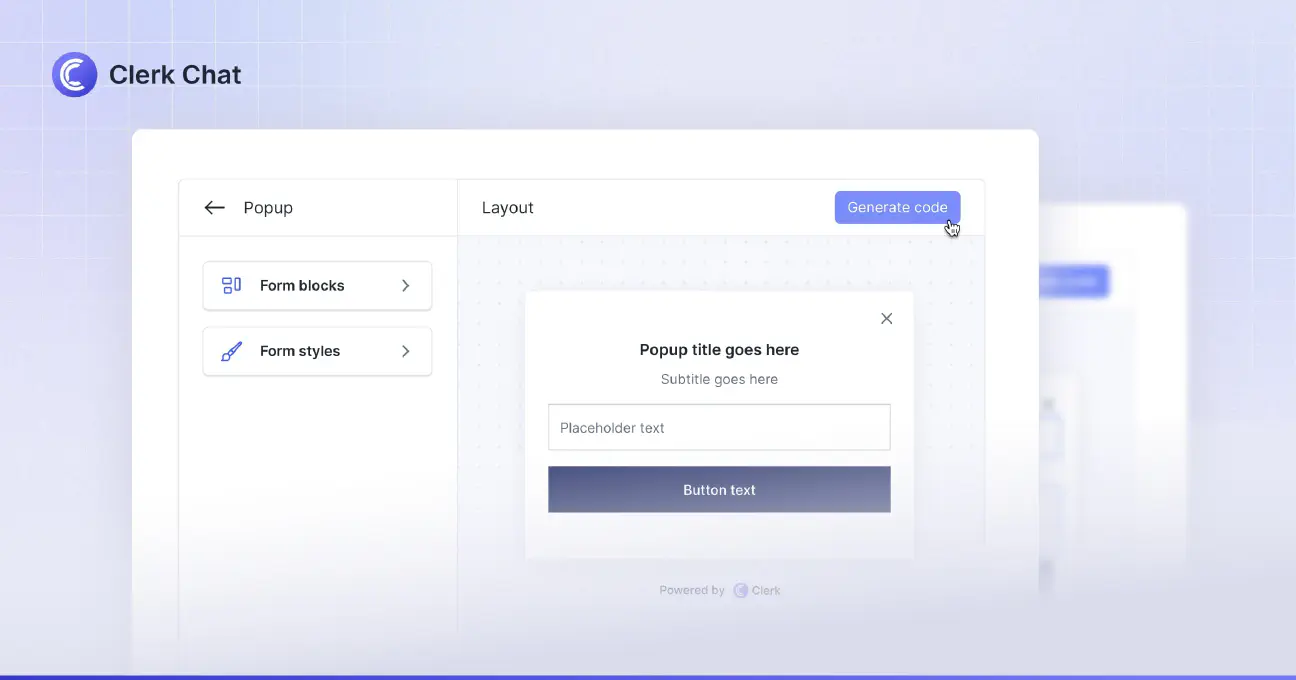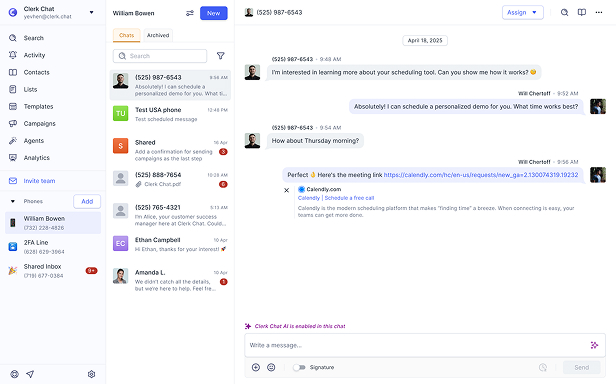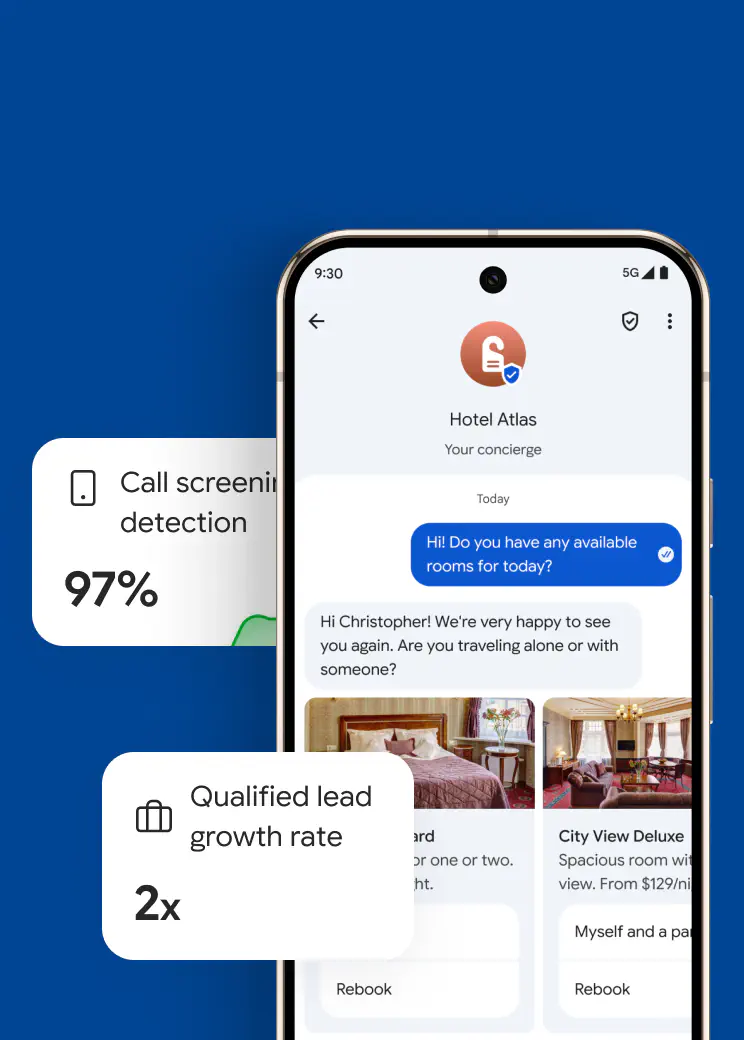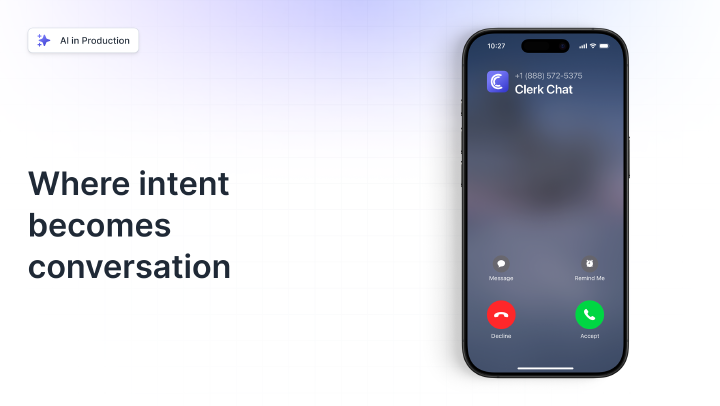HIPAA Compliant Texting: The Complete Guide for Healthcare Organizations
By Team Clerk Chat
- Published: August 20, 2024
Investing in HIPAA compliant texting and SMS marketing strategies can deliver incredible benefits for healthcare businesses.
With SMS solutions, you can significantly boost your chances of retaining patient engagement, improve customer experience with conversational messaging and even reduce issues with missed appointments. The trouble is, making your SMS strategy HIPAA compliant isn’t easy.
SMS isn’t an automatically HIPAA compliant communication method. Businesses need to ensure they protect text messages with encryption, leverage the right software, and maintain accurate records of their communications to avoid legal repercussions and fines.
The good news? If you take the right approach to HIPAA texting, you can unlock all the benefits of SMS, without putting data and your brand’s reputation at risk. Here’s everything you need to know.
What is HIPAA Compliant Texting?
The Health Insurance Portability and Accountability Act (HIPAA) is a mandate designed to protect the confidentiality and privacy of patient health information (PHI). The regulations establish specific standards for how entities should collect, store, share, and protect sensitive information.
The rules outlined by HIPAA, such as the Privacy Rule, Security Rule, and Breach Notification Rule all influence how companies manage the data they collect. To maintain HIPAA compliant texting practices, organizations need to ensure they’re preventing access to PHI where possible, safeguarding information, monitoring conversations, and working with approved third-party vendors.
HIPAA compliance is a critical consideration for most types of text messaging in healthcare. Everyone, from doctors and pharmacists, to health insurers and billing groups that deal with PHI need to ensure they’re remaining HIPAA compliant.
Failure to adhere to HIPAA’s SMS compliance rules can lead to significant fines, as well as reputational damage and legal repercussions.
Is Texting HIPAA Compliant?
On a broad level, SMS and instant messaging isn’t automatically a HIPAA compliant form of communication. Even if you adhere to other compliance guidelines, such as a TCPA checklist, or 10DLC regulation standards, your SMS strategy may not adhere to HIPAA rules.
Often, HIPAA compliant texting with patients can be difficult to achieve, because companies don’t always have much control over a message after it’s sent. Messages can accidentally reach the wrong recipient, be forwarded by another person, or be seen by unauthorized individuals.
Many standard two-way messaging platforms also don’t offer complete end-to-end encryption for patient data, which means messages could be intercepted in transit and read by the wrong people.
Because of this, most HIPAA experts advise organizations to avoid SMS when sharing PHI with other providers and patients. However, there are ways companies can invest in conversational business texting and SMS marketing campaigns, without breaking HIPAA rules.
HIPAA Texting Rules: The Mandates to Follow
HIPAA puts guidelines in place that dictate how PHI should be protected in storage and in transit. To implement HIPAA compliant texting practices, businesses need to ensure certain messages adhere to specific rules. Notably, HIPAA compliance standards only apply to messages that contain PHI.
For instance, appointment confirmation messages, notifications about test results, and messages that include information about procedures, insurance, billing requirements, and other personal data will all be subject to HIPAA rules. However, more generic text messages are usually safe.
Provided they’re still following TCPA rules and other messaging guidelines, healthcare companies can still send automated text messages that remind customers about appointments or share general information, such as letting patients know when new services are available.
For personalized text messages that do include PHI, organizations need to ensure:
- Access to PHI is restricted to authorized users and patients.
- The activity of authorized users can be monitored and audited.
- Messages are encrypted both at rest and in transit.
- Access controls are in place to verify user identities.
- Policies and procedures are in place to stop PHI from being changed or destroyed.
How to Maintain HIPAA Compliance with Text Messaging
Maintaining HIPAA compliant texting practices can be complicated, but it’s not impossible. Just as financial companies investing in insurance text messaging need to put extra precautions in place, healthcare groups simply need to take extra steps to defend PHI.
With a combination of the right technology and HIPAA text messaging policies, companies can still use SMS for everything from appointment confirmations, to prescription reminder texts, follow-up conversations and more. This opens the door to improved customer experiences, increased engagement, and a better return on investment for your marketing campaigns.
Here are some ways you can ensure HIPAA compliance with text messaging.
1. Obtain Consent for Text Communications
Just like 10DLC SMS compliance standards and many other regulations, HIPAA requires companies to obtain consent to contact their patients and customers. Before you send your first text, you’ll need to ensure you have explicit written consent from each patient.
You’ll also need to ensure you record consent data for auditing purposes. It’s also important to ensure you inform your customers about the risks of texting. Being clear about the potential issues involved with SMS (like the wrong people accidentally seeing a message) can reduce your risk level.
Offering in-depth insights into how you’ll keep text data safe, using encryption, access controls, and other security measures, can also increase the trust customers have in your organization.

2. Use a HIPAA Compliant Texting Service
Texts sent from a personal phone without specialist software aren’t HIPAA compliant. Investing in HIPAA compliance texting means leveraging a specialist service that can encrypt conversations in transit and at rest, offer access to text message archiving capabilities, and restrict access to data.
It’s also important to work with a provider that can sign a Business Associate Agreement (BAA) as this is critical to adhering to HIPAA rules.
Clerk Chat offers access to SMS templates for healthcare organizations, access controls, and message archival that can reduce compliance issues.
3. Implement Secure Access Controls
Access controls are crucial to secure HIPAA texting practices. Businesses need to ensure they’re implementing clear safeguards to reduce access to PHI and sensitive information. Two-factor authentication (2FA) is essential. This helps to reduce the risk of information being lost or stolen if criminal actors gain access to log-in details.
Alongside multi-factor authentication, it’s worth implementing strategies that govern what different employees can do with your messaging system. Maintaining control over who can customize SMS templates or share sensitive data helps you adhere to HIPAA standards.
Offering extensive employee training can also be useful here, to ensure each team member understands the risks involved with SMS, and how they can contribute to HIPAA compliant texting.
4. Securely Archive and Store Data
Just like companies using finance SMS strategies to keep accurate records of conversations, the same guidelines apply to healthcare organizations. Over time, many companies will undergo HIPAA audits which show regulators they’re protecting and safeguarding data effectively.
Using a secure archiving solution to keep a record of all conversations, from AI text messages, to two-way discussions will help you to validate your compliance standards.
Make sure you record everything, from the initial consent you receive to contact customers via tex to any data shared with third parties. Use permission controls within your software to ensure team members can’t edit or delete any crucial information.


5. Restrict PHI in Text Messages
One of the best ways to maintain HIPAA compliant texting practices is to reduce the amount of PHI you reveal in messages. Avoid including any specific information about a patient’s conditions, billing information, or their treatment in messages when possible.
Generic or vague messages, such as appointment confirmation texts that don’t include personal data are usually safer from a HIPAA compliance perspective.
Be careful about how PHI is positioned in a message too. Ideally, no messages should include sensitive information in the first couple of sentences, as this information can often show on a person’s phone in a “preview.” Use a healthcare or insurance text message template that positions personal data closer to the bottom of the text.
6. Leverage Remote Device Management Tools
Finally, if your employees are sending messages from their personal devices, accessing software in the cloud to extract PHI from documents, it’s important to ensure that you can erase any essential data on these devices remotely, when necessary.
If a device is lost or stolen, you’ll need to ensure you can wipe all potentially sensitive information from that device immediately, regardless of where it is.
Leveraging endpoint or device management software alongside your messaging software can help you to avoid a range of compliance issues.
Leverage HIPAA Compliant Texting with Clerk Chat
Ultimately, maintaining HIPAA compliant texting practices isn’t easy. However, leveraging SMS solutions can be extremely beneficial for healthcare companies. Not only do 80% of people today say they want to use their smartphones to interact with healthcare providers, but 76% say they value text reminders and notifications from healthcare groups.
To unlock the benefits of texting while adhering to HIPAA guidelines, companies simply need a combination of the right strategy and the correct technology.
Tools like Clerk Chat could offer the perfect solution. Aside from enabling automation and conversational AI for finance and healthcare companies, Clerk Chat also supports compliance with a range of mandates. The platform offers encryption, robust access controls, and messages archiving for financial advisors and healthcare organizations through integrations.
Discover how you can access the value of HIPAA texting for your company, boosting customer experience, and reducing risks, by requesting a demo of Clerk Chat today.
In this article:
Ready to use your business number for text messaging?
Thousands of businesses are already experiencing the power of conversational messaging through SMS. Join us. Free trial and paid tiers available.
Get Started#Subscribe
Get product updates in your inbox
Tutorials, features, and Clerk Chat news delivered straight to you.



